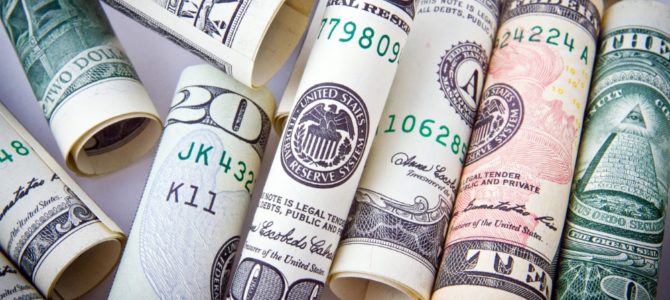
As Chairman Jerome Powell touts the Federal Reserve’s unanimous adoption of a new consensus statement with a higher inflation target, it is worth noting that none of President Trump’s dissident nominees had a vote in the matter. Senate Majority Leader Mitch McConnell’s failure to schedule a vote on Judy Shelton effectively gives Democrats a free pass on their easy money extremism right before inflation picks up.
For a year and a half, President Trump has been trying to place dissidents on the Fed’s board. In spring 2019, he floated the nominations of Herman Cain and Steve Moore. Within weeks, four Republican senators announced their opposition to Cain’s nomination, accusations of sexual harassment resurfaced, and the late Cain withdrew himself from consideration. While Moore faced no public opposition from Republican senators, after the press intervened to keep his divorce records unsealed, his withdrawal from consideration was a foregone conclusion.
Shelton’s 42 years of marriage and orderly personal life present no such opportunity for personal politics. Moreover, in 2018, the full Senate confirmed her to serve on the board of the European Bank for Reconstruction and Development without objection. This vote left senators opposed to Shelton’s accession to the Fed’s board no choice but to attack on her monetary policy.
During her confirmation hearing, Democrats characterized her defense of gold’s monetary role as disqualifying and her conciliatory tone as disingenuous. An organized group of former Fed officials claimed in a public letter that her presence at the Fed would be a distraction, and Steven Rattner, an Obama administration official, went so far as to call her dangerous in a July New York Times op-ed.
While the Fed’s monetary policy has often been political, pillorying nominees until they withdraw from consideration and then denying them a full Senate vote when they do manage to pass out of committee is unprecedented. Even in today’s highly politicized environment, the borderline hysterical opposition to Cain, Moore, and Shelton is surprising. After all, one vote is not going to change Fed policy.
One dissenting voice would, however, expose the narrow ideology to which Fed officials and staff currently subscribe, a necessary institutional correction given the obvious disdain which some Fed officials have for an outside opinion. Chris Waller, Shelton’s co-nominee and long-time Federal Reserve insider, inadvertently underscored this very point by offering a smirk rather than support for Shelton’s confirmation during their joint confirmation hearing. His attitude demonstrates why President Trump is right to put forward a series of dissident nominees, and why even those who don’t agree with Shelton’s views on monetary policy should sense danger in the Federal Reserve’s ideological rigid conformity.
Do Shelton’s opponents believe that the Federal Reserve’s operations would in some way be compromised by her mere presence in the boardroom? Is today’s peculiar combination of the dollar’s dominance, the levitating stock market, low inflation, and a record fiscal deficit dependent on mechanisms that the American public doesn’t fully understand and might not support if they did?
With Congress repeatedly failing to muster the votes to pass the Audit the Fed Act, confirming Shelton is the only plausible way to find out. If Congress is unwilling to put one dissident on the Fed’s board, then the Fed is not just independent, but functionally unaccountable.
Congress’s hesitance to ruffle feathers at the Fed is not because the Fed is unimportant, but because the Fed has become too powerful. So long as the Fed is backstopping the federal government’s runaway spending, Congress appears afraid of doing anything that might disrupt that support — including questioning the wisdom of a higher rate of inflation. Given this unfortunate reality, it’s more important than ever that the American people have at least one voice for sound money in the Fed’s boardroom.
To be clear, Fed skeptics, myself included, are not going to agree with the Fed’s policies even if Shelton is confirmed, but we would be less concerned about the Fed’s opacity if there were a credible outsider like Shelton in the boardroom.
With her presence, the Fed would still be free to suppress markets and target a higher rate of inflation, but the tradeoffs inherent in these efforts would at least be communicated by one of the Fed’s board members. Moreover, with a 12-year term, Shelton would be there to slow a future president pushing even more radical monetary policy than we already have.
Having mulled over her qualifications for 14 months, the time has come for Republicans in the U.S. Senate to confirm Shelton and expose the partisan divide on the Fed’s policies. The Democrats are completely united in their opposition to sound money.
While they may not be fully for sound money, the vast majority of Republicans, President Trump included, at least support some check on easy money. When inflation rises — and it will — Republicans will be thankful that they voted to confirm Judy Shelton.








